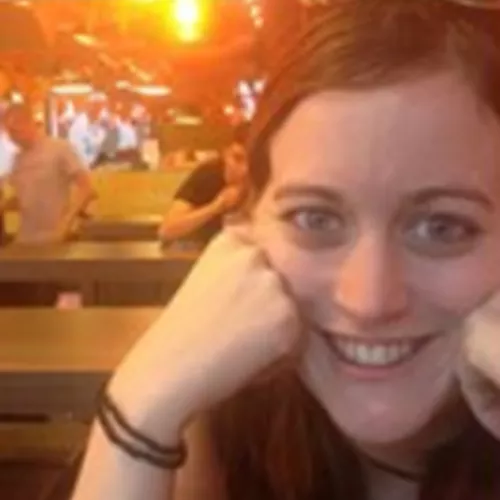Recovery and self-care for eating problems
Learn about recovery from eating problems, including how to deal with misconceptions and negative comments. And find tips for looking after yourself if you experience eating problems, such as talking to people you trust and taking care online.
This page has information about recovering from an eating problem, including:
- Dealing with misconceptions
- Coping with other people's comments
- Coping with putting on weight
- Difficult times of year
It also has some tips for taking care of yourself if you're living with an eating problem:
Recovering from eating problems
Recovering from eating problems means different things to different people. It might mean that you never have thoughts or behaviours related to your eating problem again. Or you might still experience thoughts and behaviours, but not as often. They might also have less impact on your life.
The way you perceive your relationship with food, and your views on recovery, might change over time.
You might sometimes feel:
- That you don't have a problem
- That your behaviours are in fact helpful to you
- That your eating problem feels comforting, safe or even exhilarating
- Scared of the changes that come that will with recovery
Whatever recovery feels like to you, it can take a long time to get there – even when you feel ready to try. You may have to think in years rather than weeks and months.
Recovery can seem scary if you feel:
- Afraid of losing or putting on weight
- Anxious about losing control
- That your eating problem is a big part of your life and identity, so you're not sure who you are without it.
If you have tried to recover before, or have relapsed, you might start feeling like you're completely beyond help. But it is possible to feel better, even if it takes a long time.
For more information, see our page on treatment and support for eating problems.
You can also watch our animation about recovering from an eating disorder. This includes tips for taking care of yourself, finding support and coping with difficult feelings.
I started to use what I had been through to strengthen myself. I knew that I could be determined, motivated and achieve what I put my mind too. I wanted to flip the anorexic energy into the recovery process.
Dealing with misconceptions
Many people wrongly think that only young women can experience eating problems. Because of this, it might feel hard to share your experiences if you're older or you identify as male.
Remember, anyone can have eating problems.
You may also find your body changes at a different rate to your mental health. As you start to look healthier, you may feel worse.
Other people may think you have recovered when you're still finding things very hard. It can help to keep talking about how you feel, with people you trust.
Don't give up: a letter to myself about my eating disorder
Watch Rose Ann read a letter to herself about recovery. This video is three minutes and 57 seconds long.
View video transcript as a PDF (opens in new window)
Coping with other people's comments
Not everyone around you will understand what it's like to have an eating problem. Some people may comment on your body, your weight, how much you eat or what you eat.
People might think they're saying something positive to help you. But they might not realise that it can be difficult for you to hear. This can be really hard to cope with – what helps or hurts is different for everyone.
It might help to try and explain to family and friends how you feel. Describe to them what a more helpful or supportive response would be.
You can't always stop people from saying unhelpful things. It could be a good idea to think about how you will deal with the things people might say.

I’ve met a lot of people who want to help, but find it really hard to understand how.
Coping with putting on weight
Recovery does not mean putting on weight for everybody. But for some people this is incredibly challenging to live with. Some people have found these tips have worked for them:
- Write down the reasons why you want to recover and look at them when things feel difficult.
- Take all of your clothes that don't fit to a charity shop, or sell them online.
- Treat yourself to some new clothes in sizes you feel confident in.
- Try not to spend too much time looking in mirrors or checking your body.
- Avoid weighing yourself if possible.
- Write down all the healthy physical changes that are happening in your body.
- Talk to other people – have a rant or share your worries with someone who understands.
- Try not to make comparisons or spend too much time looking at pictures of people in magazines or online. Remember that these pictures are often filtered or photoshopped.
I built myself a first aid kit of things I could turn too when I needed the encouragement to keep going. I put things in it like bucket lists, letters from those important to me, photos, future goals, phone numbers, achievements, sensory objects and distraction techniques.
Difficult times of year
There are certain times of year that might trigger difficult thoughts and behaviours. Often these are celebrations that revolve around food and eating with others, like Christmas and birthdays.
- Talk to someone you trust about how you feel and what might make things easier.
- If possible, find alternative ways to celebrate.
- Think about things you can do to look after yourself when you are finding things hard.
- Acknowledge and accept that there might be times where you feel out of control.
- Be gentle with yourself and don't set your expectations too high.

You might have a bad day on Christmas Day and as awful as that feels, you’ll get through it.
Talk to people you trust
Eating problems can feel very difficult to talk about for many reasons. People close to you may find eating problems hard to understand, but will often want to help however they can.
The eating charity Beat has tips for talking to others about your eating problem.
If you are finding it hard to talk, try writing things down. For example. you might find writing a letter helps you set out your thoughts more clearly.
You might find it helpful to show people our pages about eating problems to help them learn more.
You are always the most important person in your recovery. If you find positive relationships in others radiate off of these, laugh with them and mirror them.
Seek peer support
Eating problems can make you feel ashamed, isolated and misunderstood. It can really help to talk to people who are going through something similar.
You can look for peer support online or face-to-face. These organisations can help you find peer support for eating problems:
- Beat
- Overeaters Anonymous
- Student Minds
- Side by Side (Mind's online peer support community)
See our pages on peer support for more information.
Learn how to manage relapses
It's very common to go back to your old thoughts and behaviours. Especially around times when you feel stressed.
Try to identify situations when you might be more at risk of your eating problems returning. Some examples could be:
- When you gain or lose weight
- When your body changes shape
- Going on a diet
- Going on holiday
- During pregnancy and after giving birth
- Stressful times like exams, important events, going through a break-up or moving house
Think about your warning signs. Try to learn what you can do to prevent things from getting worse. Early warning signs could be:
- Eating too much or too little
- Making pacts with yourself about food or eating
- Feeling like you want to purge
- Thinking about food all the time
- Checking your body more
- Weighing yourself more
Most people will have setbacks in their recovery. But after each setback you may find you understand more about yourself and your eating problem.
It's important to try and be gentle with yourself. Try to accept relapses as part of a long, but achievable, process of change.
As long as I was still taking baby steps, i.e. occasionally trying a small piece of something new that wasn't too dissimilar to things I already ate, then I was still working towards better health.
Change unhealthy routines
Routines around eating and food can be hard to break. But you might find that making small changes can help. For example:
- Buy smaller amounts of food if you are worried about overeating.
- Try to distract yourself whenever you find yourself focusing on your body and weight. It can help to try a new hobby or interest that takes a lot of concentration.
- Find fun things to distract yourself after meals if you are worried about purging.
- Try to think of some positive goals that are not related to food or calories.
I do better with buying food in single servings so I only have around what I’m intending to eat there and then.
Take care online
If you have an eating problem you may find that you spend a lot of time comparing your body to other people's, sometimes without even really realising you are doing it. We are often surrounded by pictures and images – especially on social media.
- Be aware of how you feel when you are online and adjust the places you visit and the people you follow if you need to. It is ok to take a break from social media, or to adjust your lifestyle, so that this plays less of a part in how you spend your time.
- Remember that many pictures have been manipulated to make the person look different. Pictures on social media may have been filtered or photoshopped.
- Think about how you deal with pictures of yourself. Do they make you feel bad or do you feel you need to change them to hide how you really look?
- Think about whether you are following anyone whose pictures make you feel bad or trigger problematic thoughts. Unfollow them if you can.
- Block or avoid any websites that promote eating disorders.
- Look for positive communities around eating, recovery and body positivity.
This information was published in January 2021. We will revise it in 2024.
References and bibliography available on request.
If you want to reproduce this content, see our permissions and licensing page.


















